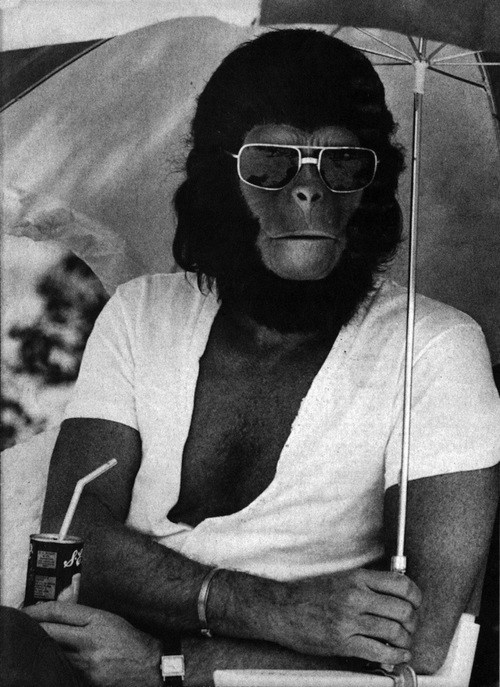The Economist has a review of The Improbable Primate: How Water Shaped Human Evolution, Clive Finlayson’s new book which argues that H2O was what made us modern, though I’ve always thought it likely that it was a confluence of numerous factors. The opening:
“ACCORDING to the standard treatment in evolutionary biology, about 1.8m years ago man’s brain became larger, his gut became smaller and he started walking upright. No ape had done that before. It was an important milestone in the story of human evolution.
The ancestor in question, Homo erectus, could use simple tools and hunt. His diet was more meat-based than plant-based. Meat has more calories than food derived from plants. Humans had transformed themselves from tree-climbing apes that needed to spend a lot of time searching for food to upright, meat-consuming hunters that could roam large distances. So successful was this transformation, evolutionarily speaking, that in due course the descendants of Homo erectus, modern-day Homo sapiens, had no problems colonising the far reaches of the globe.
A few years ago Richard Wrangham, a British primatologist at Harvard University, challenged this accepted wisdom by arguing that learning to cook had made apes human. People cannot easily digest raw meat, he said. Cooking food increases its nutritional value. Mr Wrangham showed that Homo erectus learned to cook with fire about 1.8m years ago. This development conferred evolutionary benefits that ultimately led to the dominance of Homo sapiens today.
In a new book, Clive Finlayson, a zoologist and palaeontologist, who is the director of the Gibraltar Museum, offers another view of 7m years of human evolution. Instead of food, he focuses on water, advancing the theory that the spread of Homo sapiens across the globe was driven largely by changes in climate and access to fresh water.”
Tags: Clive Finlayson, Richard Wrangham

